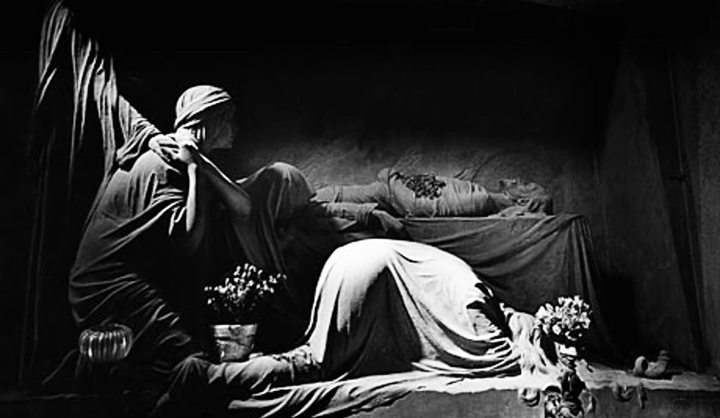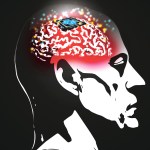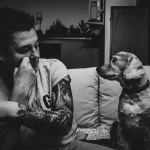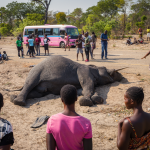Maverick Life
Health-e News: On death and dying – when the time comes

While science has doubled our life spans, for many elderly people, the last phase of their lives is often a painful series of medical interventions that delay death, but do not add value to life. What should the role of medicine be at the end of a person’s life? By KERRY CULLINAN for HEALTH-E NEWS.
I have been thinking a lot about death in the past 18 months. During this time, my vivacious and talkative mother suffered a stroke, and is now unable to speak or move the right side of her body. Meanwhile, my once-brilliant father’s ability to perform basic tasks recedes daily as Alzheimer’s disease damages more and more of his brain. But what I have come to realise, as I watch my parents struggling with their challenges, is that I have really been thinking about life: What makes our lives worthwhile, and how can we maintain an acceptable quality of life towards the end of our days.
Since 1900, life expectancy worldwide has more than doubled – from around 30 to 67 by 2010. Even in Africa, which still has relatively poor healthcare, life expectancy has leapt from about 25 to 58. The main factors are the massive worldwide reduction in deaths of babies and young children, fewer women dying in childbirth, better containment of infectious diseases and improved access to clean water and sanitation.
While medical science and improved infrastructure has given us many more years of life than our recent ancestors, the huge challenge is how to ensure that the end phase of life is worth living for those who are old and frail. What this means obviously varies from person to person, but the common basic ingredients would be being relatively pain-free, comfortable and with loved ones.
“We have come to medicalise aging, frailty and death, treating them as if they were just one more clinical problem to overcome. However, it is not only medicine that is needed in one’s declining years but life – a life with meaning, a life as rich and full as possible under the circumstances,” wrote renowned neurologist Oliver Sacks, who died last year, aged 82.
In developed countries, most elderly people die in hospitals rather than at home – many after a series of operations that may delay their deaths, but diminish the quality of their lives. Worldwide, death has been outsourced to hospitals, nursing homes and long-term care facilities as most people and their families are too afraid to prepare for this inevitability and discuss exactly what they would like to happen.
In the USA, only a quarter of those over the age of 65 die at home yet over 70% of people say they would prefer to die at home. Statistics for where South Africans die do not exist. But as tuberculosis is the biggest killer of South Africans, it is likely that many of those infected with TB will be admitted to hospitals in their final days. People on medical aid are also more likely to die in hospitals than those without it.
About six months before her stroke, my mother sent my siblings and me a letter saying that she did not want to be kept alive artificially. But she is not connected to tubes that are keeping her alive by helping her to eat, breathe and eliminate waste. Although the quality of her life has been radically diminished, we have no guidelines from her about what she would like to happen to her. We do not know how to find a balance between her suffering and what she would define as an acceptable quality of life.
Our family never had the hard conversations about death that we should have in order to find out what our parents’ wishes and limits were. Now that my mother can no longer express what she wants and my father does not have the mental capacity to do so, we have to rely on what we know about their past habits and preferences to try to ease their final years. It is impossible to prepare for every scenario, but it is extremely helpful to discuss possibilities so that the burden of decision-making does not fall on distressed family members in a crisis.
Atul Gawande, writing in “Being Mortal: Medicine and what matters in the end” (Metropolitan Books, 2014), says that “scientific advances have turned the experiences of aging and dying into medical experiences, matters to be managed by health care professionals”.
Gawande, who practices as a surgeon at Brigham and Women’s Hospital in Boston, adds: “The waning of our lives are given over the treatments that addle the brain and sap our bodies for a sliver’s chance of benefit. They are spent in institutions – nursing homes and intensive care units – where regimented, anonymous routines cut us off from all things that matter to us in life.”
Gawande argues that the medical profession has chosen to emphasize survival rather than well-being – that involves the very reasons that make a person want to be alive: “Sometimes we can offer a cure, sometimes only a salve, sometimes not even that. But whatever we offer, our interventions, and the risks and sacrifices they entail, are justified only if they serve the larger aims of a person’s life. When we forget that, the suffering we inflict can be barbaric.”
Sacks, who wrote five books after the age of 65, discovered that he had incurable liver cancer a few months before his death. Writing in the New York Times after his prognosis, Sacks said: “There is no time for anything inessential. I must focus on myself, my work and my friends.”
“Over the last few days, I have been able to see my life as from a great altitude, as a sort of landscape, and with a deepening sense of the connection of all its parts. This does not mean I am finished with life,” wrote Sacks. “On the contrary, I feel intensely alive, and I want and hope in the time that remains to deepen my friendships, to say farewell to those I love, to write more, to travel if I have the strength, to achieve new levels of understanding and insight.”
Few of us are ever going to be able to predict our death within months as Sacks was able to. But many of us turn a blind eye to the frailties of ourselves and those that we love because we simply do not have the courage to confront death. Yet, as the old cliché goes, the only certainties in life are death and taxes. While we plan for the latter, most of us are completely unprepared for death. Circumstances vary massively at the end – determined by our state of health and the money we have to make ourselves comfortable. But all of us have the power to define what makes our lives worthwhile, to draw our lines in the sand and make our wishes clear to those closest to us so that they don’t have to make crucial decisions on our behalf. DM
Photo: The cover image of Closer by Joy Division.

















 Become an Insider
Become an Insider